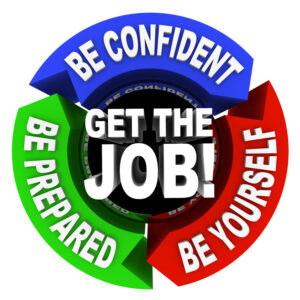
So you have done all the prep work – you’ve spent hours on your CV, re-written your covering letter for the final time, you may have even made the effort to include a photo of yourself to help you stand out from the crowd in a sea of type-written A4 or text covered screens – and now you’ve been invited for an interview. Despite all your hard work so far, this is only the beginning, now you have to really promote yourself. Now you have to stand out from the crowd!

Everyone knows the questions will be tough – the fear of awkward silences while you rack your brain for an appropriately intelligent response will lift the hair on the neck of the even the most seasoned interviewee – so we’ve put together some of the toughest questions and how to deal with them.
We’re diving straight in at the deep end with this one. As with most questions you will be asked, the interviewer is not so much interested in the direct answer but more in the way you dealt with the situation. Virtually everyone has had a conflict of some type during their working life and so it may look a little dubious if you claim to have never experienced it. Instead, cite a time when you had a minor professional disagreement with someone at work that you were able to resolve. For example – you were able to put yourself in a colleague’s shoes and consider the argument from their point of view, allowing you to reach a mutual agreement and understanding.

Let’s face it, nobody really likes being criticised but it’s part of life. The trick is to put a positive spin on it. So instead of saying how much you dislike it, explain that you see each criticism as an opportunity for learning and growing, to enable you to perform better within your role. Focus your answer on the benefits you personally can reap from criticism.
Although it might sound like it, this is NOT an opportunity for you to complain about your old boss/colleagues/working conditions/salary etc.. Start positively with a couple of things you did like about your job, move on to the part you didn’t like, and then finish with how this job will solve those issues for you.
You liked – the people/the work
You didn’t like – the lack of promotion prospects/the long commute
This job will – offer more opportunity for promotion/is closer to home.

It’s an oldie but a goodie and you are almost guaranteed to get this question. Again, the interviewer is not so much interested in your personal failings but wants to hear how you handle the response. Keep it short, honest and turn your negative trait into a positive experience by highlighting how you have overcome it and improved yourself into the bargain.
Come back and join us next month when we tackle more difficult interview questions and give tips on how to handle them.
We make your life easier by managing your recruitment process for you, using our expertise and proven methods.
If we can help you to find the right candidate for your role, please get in touch with us today.